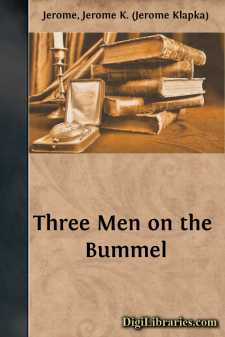Categories
- Antiques & Collectibles 13
- Architecture 36
- Art 48
- Bibles 22
- Biography & Autobiography 813
- Body, Mind & Spirit 142
- Business & Economics 28
- Children's Books 14
- Children's Fiction 11
- Computers 4
- Cooking 94
- Crafts & Hobbies 4
- Drama 346
- Education 46
- Family & Relationships 57
- Fiction 11829
- Games 19
- Gardening 17
- Health & Fitness 34
- History 1377
- House & Home 1
- Humor 147
- Juvenile Fiction 1873
- Juvenile Nonfiction 202
- Language Arts & Disciplines 88
- Law 16
- Literary Collections 686
- Literary Criticism 179
- Mathematics 13
- Medical 41
- Music 40
- Nature 179
- Non-Classifiable 1768
- Performing Arts 7
- Periodicals 1453
- Philosophy 64
- Photography 2
- Poetry 896
- Political Science 203
- Psychology 42
- Reference 154
- Religion 513
- Science 126
- Self-Help 84
- Social Science 81
- Sports & Recreation 34
- Study Aids 3
- Technology & Engineering 59
- Transportation 23
- Travel 463
- True Crime 29
The Observations of Henry
Categories:
Description:
Excerpt
This is the story, among others, of Henry the waiter—or, as he now prefers to call himself, Henri—told to me in the long dining-room of the Riffel Alp Hotel, where I once stayed for a melancholy week “between seasons,” sharing the echoing emptiness of the place with two maiden ladies, who talked all day to one another in frightened whispers. Henry’s construction I have discarded for its amateurishness; his method being generally to commence a story at the end, and then, working backwards to the beginning, wind up with the middle. But in all other respects I have endeavoured to retain his method, which was individual; and this, I think, is the story as he would have told it to me himself, had he told it in this order:
My first place—well to be honest, it was a coffee shop in the Mile End Road—I’m not ashamed of it. We all have our beginnings. Young “Kipper,” as we called him—he had no name of his own, not that he knew of anyhow, and that seemed to fit him down to the ground—had fixed his pitch just outside, between our door and the music hall at the corner; and sometimes, when I might happen to have a bit on, I’d get a paper from him, and pay him for it, when the governor was not about, with a mug of coffee, and odds and ends that the other customers had left on their plates—an arrangement that suited both of us. He was just about as sharp as they make boys, even in the Mile End Road, which is saying a good deal; and now and then, spying around among the right sort, and keeping his ears open, he would put me up to a good thing, and I would tip him a bob or a tanner as the case might be. He was the sort that gets on—you know.
One day in he walks, for all the world as if the show belonged to him, with a young imp of a girl on his arm, and down they sits at one of the tables.
“Garsong,” he calls out, “what’s the menoo to-day?”
“The menoo to-day,” I says, “is that you get outside ’fore I clip you over the ear, and that you take that back and put it where you found it;” meaning o’ course, the kid.
She was a pretty little thing, even then, in spite of the dirt, with those eyes like saucers, and red hair. It used to be called “carrots” in those days. Now all the swells have taken it up—or as near as they can get to it—and it’s auburn.
“’Enery,” he replied to me, without so much as turning a hair, “I’m afraid you’re forgetting your position. When I’m on the kerb shouting ‘Speshul!’ and you comes to me with yer ’a’penny in yer ’and, you’re master an’ I’m man. When I comes into your shop to order refreshments, and to pay for ’em, I’m boss. Savey? You can bring me a rasher and two eggs, and see that they’re this season’s. The lidy will have a full-sized haddick and a cocoa.”
Well, there was justice in what he said. He always did have sense, and I took his order. You don’t often see anybody put it away like that girl did. I took it she hadn’t had a square meal for many a long day. She polished off a ninepenny haddick, skin and all, and after that she had two penny rashers, with six slices of bread and butter—“doorsteps,” as we used to call them—and two half pints of cocoa, which is a meal in itself the way we used to make it. “Kipper” must have had a bit of luck that day. He couldn’t have urged her on more had it been a free feed.
“’Ave an egg,” he suggested, the moment the rashers had disappeared. “One of these eggs will just about finish yer.”
“I don’t really think as I can,” says she, after considering like.
“Well, you know your own strength,” he answers. “Perhaps you’re best without it. Speshully if yer not used to ’igh living.”
I was glad to see them finish, ’cause I was beginning to get a bit nervous about the coin, but he paid up right enough, and giv me a ha’penny for myself....












